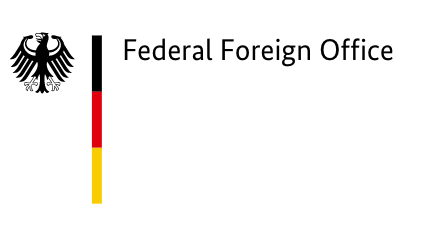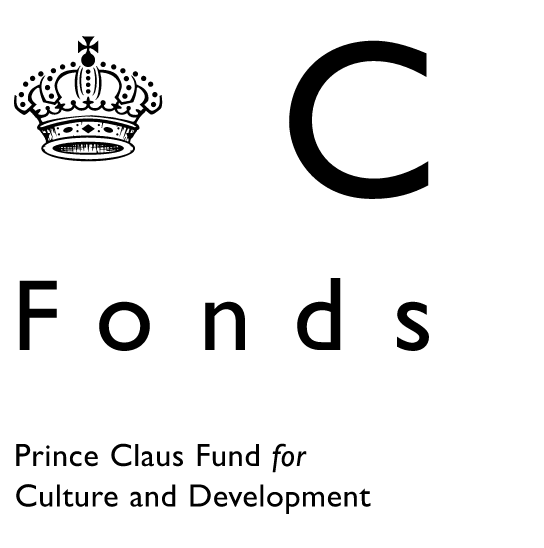Donors
Preserving the Cultural Heritage of the Occupied Regions (Tskhinvali Region- PCHOR) Project
Project Duration: September 2022-
The partners of the project: Didi Liakhvi Valley Museum-Reserve (DLVMS) and the University of Pennsylvania Museum of Archaeology and Anthropology Cultural Heritage Center (PennCHC).
The PCHOR Project maintains a primary goal: To empower Georgian IDPs by promoting awareness of their shared cultural heritage, investing in the resilience of cultural identity, and encouraging a newfound investment in the cultural heritage of Georgia’s occupied regions.
“Protection of Intangible Heritage of Occupied Regions”
Project Duration: March 2022 – June 2023
The partners of the project: Historical-Cultural Heritage Protection Center – a local NGO and the University of Pennsylvania Museum of Archaeology and Anthropology Cultural Heritage Center (PennCHC).
The project aims to preserve the intangible heritage of the internally displaced population from the Tskhinvali region. It is a pilot project and at the initial stage, it focuses on the population displaced from the village of Kekhvi.
“Planning for the Safeguarding of Cultural Heritage of Gori, Georgia”
Project Duration: March 2020 – March 2022
Partners of the project: Municipality of Gori, Ministry of Education, Culture and Sports of Georgia, Georgian National Agency for the Preservation of Cultural Heritage, The Emergency Management Service of the Ministry of Internal Affairs of Georgia, The Ministry of Defense National Guard.
The International Alliance for the Protection of Heritage in Conflict Areas (ALIPH)
The International alliance for the protection of heritage in conflict areas (ALIPH) provides concrete support for the protection and reconstruction of cultural heritage in conflict zones and post-conflict situations. The Alliance was founded in March 2017.
Project by Blue Shield will aim at establishing a Disaster Risk Management Plan for armed conflict for the Gori Museum, documenting it’s collections, improving storage conditions, enhancing capacity in preventive conservation and in first aid to cultural heritage of the Gori and other shida Kartli museum staff. The project will also address enhancing civil-military cooperation among state authorities responsible for the protection of cultural heritage.
Conservation of Modernist Architecture and its Sustainable Use in Georgia
Project duration : September 2018 – February 2020
Partners:Tbilisi City Municipality, Georgian Chess Federation and the Alpine Club.
The Getty Foundation’s grant, under it’s Keeping It Modern initiative is to support research and preparation of conservation plan and maintenance recommendations for Chess Palace and Alpine Club in Tbilisi, Georgia, designed by famous Georgian architects Vladimir Aleksi-Meskhishvili and Germane Gudushauri.
The aim of the project is: To develop a first ever conservation plan for a late Soviet Modernism building in Tbilisi which will serve as a prototype for other similar period buildings, to facilitate future proper restoration, conservation and continued maintenance of a late Soviet Modernism style building; Awareness raising on the values of late Soviet Modernism period architecture among city authorities and wider Georgian public through listing the site and carrying out public awareness activities with the help of international experts and use of various types of media; Training young architects and heritage professionals in documentation and conservation planning processes.
Implementing the 1954 Hague Convention and its two protocols to protect heritage sites in occupied territories of Georgia
Project Duration: June 1st, 2018 – March 31, 2019
Partner: University of Newcastle, School of Arts & Cultures,Faculty of Humanities & Social Sciences (HaSS)
Project activities include: Collation and translation of documents relating to the state of conservation and protection of heritage sites in Georgia’s occupied territories from media, governmental institutions, and others. Mapping the data to understand which heritage sites have been affected during the conflict. Review of the data with University of Newcastle and identification of paths for future work, Translation of the data into English; Development of a case study (occupied Georgia) examining implementation and effectiveness of Article 9 of the 1999 Second Protocol to the 1954 Hague Convention.
Strengthening Common Engagement and Mutual Support in Raising Awareness of World Cultural Heritage Values
Project Duration: October-December 2017
Partner: World Heritage Watch e.V. (Germany)
GNCBS as one of the partners out 3 seminars in Georgia’s world heritage sites, in Kutaisi, Mestia and Mtskheta. The seminars were attended by the staff of cultural institutions, like the museum and library, secondary school teachers, students, journalists and local government officials as well as heritage activists and local population. Within the scope of the project, BNCBS participated in the journalists’ exchange by selecting and sending one journalist to Ukraine and hosting one from Russia. The selected journalist from Georgia travelled to Ukraine for a study visit and met with various stakeholders, had interviews with museum and heritage site management staff. Her article about the World Heritage situation in Kiev was published online in Tabula newspaper. Journalist from the St. Petersburg journal “Gorod” travelled to Georgia. GNCBS arranged his meetings, excursions and interviews in Mtskheta, Tbilisi and Kutaisi.
Emergency response to mold outbreak at Ivane Javakhishvili Tbilisi State University Library
Project Duration: December 2016 – March 2017
Partners: Ivane Javakhishvili Tbilisi State University Library
The aims of the project included:
- Evaluate the general storage conditions affecting special collections at Ivane Javakhishvili Tbilisi State University Library to halt a large mold outbreak;
- Define a protocol for handling and cleaning the mold-damaged books that will protect Library employees’ health and not cause further damage to 200,000 affected rare books;
- Specify a protocol for correcting the humidity problem in the Library’s basement so the basement space can be reused without fear of a recurring mold outbreak. Recommendations will focus on integrating preservation needs with an overall sustainable plan for preventative collection care. The project will also improve awareness among the management and staff of institutions in Tbilisi housing paper based collections about the hazards associated to mold outbreak.
Cultural Heritage at Risk Engaging Civil Society and Media
Project Duration: April 2016 – January 2017
Partners: Cultural Heritage without Borders – CHwB (Sweden and Albania)
The aim of the project was to raise awareness on the protection of heritage in a wider public; Strengthening Cultural Heritage Society Platform (CHSP); as well as informing young people about heritage protection and management issues.
Within the framework of the project, was developed action plan and communication strategy for Cultural Heritage Society Platform, round table discussions around the issues of cultural heritage protection, journalists with the best material prepared on cultural heritage were awarded and a “Heritage Club” was created.
Youth Heritage Activists’ Camp
Project Duration: April-October 2016
Partners: Cultural Heritage without Borders – CHwB (Sweden and Albania)
Young Activists Heritage Camp” was aiming at increase the involvement of young people in the field of cultural and natural resources, at developing their skills as activists in order to increase civic awareness on the values of heritage, conservation, sustainable use and risk management.
Under the scope of the project was a 4 day intensive training was conducted, dedicated to conservation, management, sustainable use and protection of cultural and natural resources, as well as to sharing experience in heritage protection campaigns in different countries.
Enhance the capacity of Mtskheta museum reserve staff in risk preparedness and emergency response action Project
Duration: September 2015 – January,2016
Partners: WATCH International
Within the framework of the project a 2 day introductory training in risk preparedness and risk mitigation measures for museums professionals from Mtskheta and Shida Kartli region was held in the town of Gori on October 21-22nd, 2015. Recommendations for a risk-preparedness for Mtskheta Archaeological Museum’s new building were developed. Project Partner: WATCH International and Georgian National Agency for the Preservation of Cultural Heritage.
Creative Force Programme Seed Funding
young Heritage Activist Camps Preparatory Project
Project Duration:September-December, 2015
Partners: Cultural Heritage without Borders – CHwB (Sweden and Albania)
The aim of the project was to conduct working meetings of the partner organisations – the Georgian National Committee of the Blue Shield and Cultural Heritage without Borders in order to discuss the joint project proposal regarding the organization of young heritage activists’ camp.
Within the mission of CHwB Sweden and Albania office representatives to Georgia several meetings were held with various stakeholders of the project and the project proposal was further elaborated. The seed funding was also used to develop GNCBS’s website, print information brochures and assist with the organizational capacity building.









